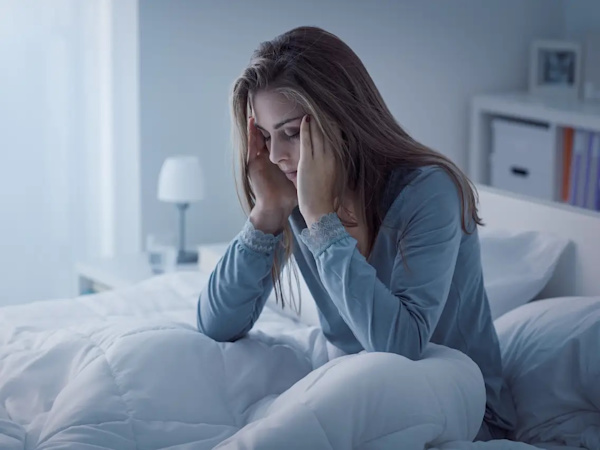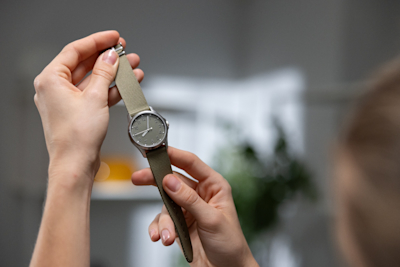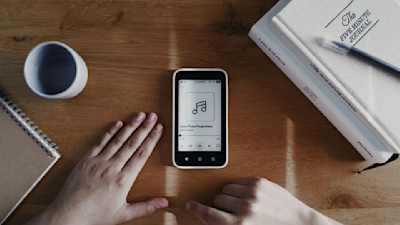
The impact of stress and anxiety on sleep hygiene
Do you find yourself tossing and turning at night, unable to escape the grip of stress and anxiety? The link between our mental state and our ability to get a good night's sleep is a powerful one, creating a vicious cycle that can leave us feeling exhausted and overwhelmed.
At Mudita, we often discuss the intricate relationship between stress, anxiety, and sleep hygiene, exploring how these factors interplay and perpetuate each other. We also have several articles on our blog which provide our community with practical strategies to address the underlying causes of stress and anxiety, as well as implement effective techniques to improve your sleep hygiene.
READ: What causes insomnia & how to treat it
However, in this article, we wanted to dive deeper into why these issues are so closely connected and why, if left untreated, it can create a vicious cycle which can negatively impact our health and overall well-being, sometimes, even very seriously.
By understanding the mechanisms behind this cycle, we can equip ourselves with the knowledge and strategies needed to break free and achieve restful, rejuvenating sleep.
Get ready to discover the key to unlocking a peaceful slumber and waking up refreshed each day.
However, we need to go over and explain the cycle in greater detail:
Stress and Anxiety: Stressful events, such as work deadlines, relationship problems, or financial concerns, can trigger the body's stress response. Anxiety, characterized by excessive worry and fear, can also contribute to heightened stress levels. When stress and anxiety arise, the body releases stress hormones, particularly cortisol, which prepares the body for a "fight-or-flight" response. The increased cortisol levels can lead to heightened alertness and make it difficult to relax and fall asleep. Additionally, anxiety can result in racing thoughts, worry, and a heightened state of arousal that hampers the ability to wind down and enter a restful state. This is known as ruminations and are actually quite common.
Sleep Disruption: Stress and anxiety can manifest in various ways which very often can disrupt sleep. Individuals may experience difficulties initiating sleep (falling asleep) or maintaining sleep (frequent awakenings). The physiological and psychological effects of stress and anxiety contribute to these disruptions. Physiologically, the heightened arousal and alertness make it challenging to transition into a relaxed state, which is conducive to sleep. Psychologically, racing thoughts and worry can occupy the mind, making it difficult to quiet the mental chatter necessary for sleep initiation and maintenance. What’s even more interesting is that when you’re using your phone as an alarm clock, keeping it close by on your nightstand, the random alerts and notifications also play into your mind’s ability to relax. That’s why sleep experts recommend switching to an offline alarm clock, such as Mudita Bell or Mudita Harmony.
Mudita design ethos is centered around a modern, minimalist approach.
Sleep Deprivation: Poor sleep due to stress and anxiety can lead to sleep deprivation. Sleep deprivation occurs when individuals consistently fail to obtain the recommended amount of sleep for their age group, which is typically around 7-9 hours for adults. This further exacerbates stress and anxiety, because it impairs cognitive function, emotional regulation, and resilience. Inadequate sleep reduces your ability to cope with daily challenges and regulate emotions effectively, amplifying the impact of stressors and perpetuating the cycle of stress and anxiety.
Heightened Stress and Anxiety: Sleep deprivation can increase the body's stress response, leading to heightened levels of stress and anxiety during the day. The lack of sleep disrupts the body's hormonal balance, impacting the regulation of stress hormones like cortisol. Elevated stress and anxiety levels further contribute to the difficulties in relaxing and falling asleep, creating a vicious cycle. Furthermore, sleep deprivation impairs cognitive function, memory, and decision-making abilities, making it more challenging to cope with stressors effectively.
Negative Coping Mechanisms: In an attempt to alleviate stress and anxiety, some individuals may resort to negative coping mechanisms. These behaviors can further disrupt sleep patterns and perpetuate the cycle of stress, anxiety, and poor sleep hygiene. For example, consuming caffeine or alcohol close to bedtime can interfere with the ability to fall asleep and maintain restful sleep. Some people, when they have trouble falling asleep, might reach for their phone or turn on the TV, thinking they can tire themselves out. However, excessive screen time before bed exposes those individuals to blue light, which can suppress the production of the sleep-promoting hormone melatonin. Additionally, overeating, especially consuming heavy meals late at night, can cause discomfort and indigestion, making it difficult to sleep comfortably.
Impaired Sleep Hygiene: Stress and anxiety can also negatively affect sleep hygiene. Sleep hygiene refers to the habits and practices that promote healthy sleep. During periods of heightened stress and anxiety, individuals may develop irregular sleep schedules, neglect relaxation techniques, engage in stimulating activities close to bedtime, or create an unfavorable sleep environment. Irregular sleep schedules can disrupt the body's internal clock, making it harder to fall asleep at a consistent time. Neglecting relaxation techniques, such as mindfulness exercises or an offline bedtime routine, prevents the mind and body from adequately preparing for sleep. Engaging in stimulating activities, like intense exercise or emotionally charged conversations, before bed can increase arousal levels and interfere with sleep onset. Lastly, an unfavorable sleep environment, characterized by excessive noise, uncomfortable bedding, or a cluttered bedroom, can contribute to sleep difficulties and perpetuate the cycle of stress, anxiety, and poor sleep hygiene.
Let’s sum up.
Stress and anxiety can create a vicious cycle which negatively impacts sleep hygiene.
Stressful events and anxious thoughts trigger the release of stress hormones, disrupting the ability to relax and fall asleep.
Sleep disruption and deprivation further exacerbate stress and anxiety, impairing cognitive function and emotional regulation. This, in turn, heightens stress and anxiety levels during the day, perpetuating the cycle.
Negative coping mechanisms, such as caffeine or alcohol consumption, excessive screen time, and overeating, can worsen sleep patterns.
Additionally, stress and anxiety can impair sleep hygiene by causing irregular sleep schedules, neglecting relaxation techniques, engaging in stimulating activities before bed, and creating an unfavorable sleep environment.
Breaking this cycle requires addressing both the underlying stress and anxiety and implementing strategies to improve sleep hygiene, such as practicing relaxation techniques, mindful breathing, maintaining a consistent sleep schedule, creating a soothing sleep environment, and seeking professional help if needed. Understanding the intricate relationship between stress, anxiety, and sleep hygiene is key to reclaiming restful nights and rejuvenating days. By recognizing the cycle that traps us, we can implement effective strategies to break free from its grip.
It’s important to remember, stress and anxiety initiate a cascade of events which disrupt our ability to relax and fall asleep. Sleep disruption and deprivation only intensify these issues, leading to heightened stress and anxiety levels during the day. Negative coping mechanisms and impaired sleep hygiene further exacerbate the cycle, making it harder to find relief.
However, it’s helpful to know that there is hope. By addressing the underlying causes of stress and anxiety and implementing healthy sleep practices, we can begin to restore balance. Practicing relaxation techniques, like meditation and mindful breathing, maintaining a consistent sleep schedule, creating a soothing sleep environment, and seeking professional help when needed are all powerful steps toward breaking the cycle.
At Mudita, we understand the importance of holistic well-being and offer practical advice and tools to support your journey. Together, let's reclaim peaceful slumber and wake up refreshed, ready to face each day with vitality and clarity.
Embrace the power to transform your sleep and break free from the grip of stress and anxiety.
If you’d like to read more about improving your sleep hygiene, please check out our Sleep Better page or read some additional articles connected to the subject on our blog:
Also consider joining our Mudita Community on our forum.
Related stories

Why the World Needs a Mindful Field Watch
Why the world needs a mindful field watch. Discover how Mudita Radiant offers clarity, durability, and a calmer relationship with time.

The Story of Mudita Radiant & Designing Time Differently
Read about the story behind Mudita Radiant, a Swiss automatic field watch designed with clarity, durability, and mindful craftsmanship. Wear time differently.

Discover What’s New in Mudita Kompakt OS K 1.3.0
MuditaOS K 1.3.0 adds music playlists, manual network selection, better security, SMS stability & photo preview/ downloading in Mudita Center.
If you'd like to receive the best stories from our blog, keep up to date with our progress and get notified about our product releases and special discounts.